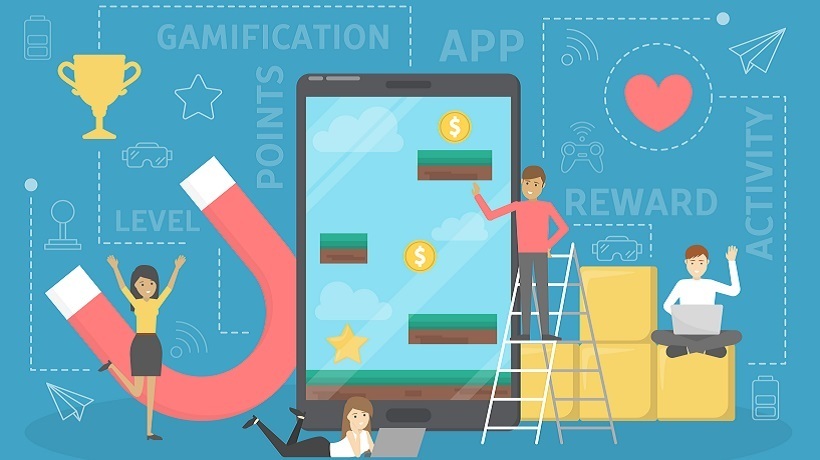How To Know That Your Online Learners Are Ready For Gamification
There are a number of reasons why it's wise to research your audience. It helps you identify their needs, knowledge gaps, and personal preferences. But evaluation and eLearning assessment also let you know when it's time for a change. In fact, your online learners may be ready for the friendly competition and intrinsic motivation that gamification can provide. Here are 5 of the tell-tale signs that eLearning professionals should look for.
1. Online Learners Need Immediate, Personalized Feedback
If your online learners directly ask the instructor for further feedback or continue to make the same mistakes, it may be time for game mechanics. Gamification gives online learners the immediate, personalized feedback they need in the form of rewards, or the absence of rewards, for that matter. If an online learner doesn't score well on a test, they don't earn that badge they've been looking forward to. Gamification allows them to identify areas for improvement, even though there isn't direct online instructor or peer involvement. This is ideal for online learners who are uncomfortable giving and receiving feedback. For example, individuals who prefer to work on their own and aren't fond of constructive criticism.
Top tip: Bear in mind that gamification does not take the place of support. There are times when online instructors may have to intervene and offer additional online resources. Online instructors should still monitor learner performance via eLearning assessments and LMS analytics. This helps them identify gaps so that they can recommend suitable eLearning activities and modules.
2. Online Learners Want To Try Out Different Risk-Free Approaches
Many gamification strategies involve branching scenarios and simulations that feature game mechanics. For example, a task simulation that allows online learners to unlock fun eLearning activities or earn points. This gives them the opportunity to try out different approaches and improve their performance in a risk-free environment. Online learners don't have to worry about making mistakes because it's all part of the process. As such, gamification is a great option for people who want to explore every outcome and see where it leads them. Every choice can unlock unexpected benefits or reveal areas for improvement.
Top tip: Develop gamified eLearning activities that reflect real-world challenges and situations. This enhances the benefits, as online learners are able to apply their knowledge and skills in context. In addition, don't let the gaming elements overshadow real-world practicality. Otherwise, they may be so distracted by the rewards that they miss the key takeaways.
3. Online Learners Feel Their Accomplishments Are Being Overlooked
Above all else, gamification gives credit where credit is due. Online learners who give it their all and perform at their best move up the leaderboard and collect points. Those who are distracted or unmotivated don't fare as well. Therefore, gamification acknowledges online learners' accomplishments and rewards their hard work. Individuals who currently feel like they're being overlooked have the chance to show off their skills and knowledge. However, it shouldn't be a matter of proving one's worth. The point of gamification is to give online learners the motivational boost they need and the personal recognition they deserve. Once again, game mechanics shouldn't replace personalized praise. It's important to acknowledge online learners on a case-by-case basis and reach out to them individually. Top performers may lose their motivation if the online instructor or facilitator continually overlooks their achievements.
4. The Term "Mandatory Compliance" Makes Them Yawn, Sigh Or Shudder
The mere mention of the word "mandatory" makes certain online learners click away. Even if they do participate, they aren't fully engaged in the online training process. This is because human beings don't like being forced into anything. We prefer to make our own choices and act of our own free will. As a result, online learners perceive mandatory compliance as boring, tedious, and dread-worthy. Gamification has the power to transform mandatory compliance online training by making it fun and engaging. Online learners aren't being coerced into earning badges or moving up the leaderboard. Their competitive nature and intrinsic motivation has taken over. The word "mandatory" is no longer an issue, because online learners are driven to unlock the next level and accrue credits.
5. The Current Strategy Doesn't Cater To Their Personal Learning Needs
Gamification caters to a broad range of learning needs and preferences. Especially when you include different eLearning activities and multimedia. Furthermore, game mechanics offer a variety of motivational triggers for your audience. For example, a point system fuels online learners who enjoy collecting and saving to earn larger rewards, while a leaderboard suits for competitive online learners who like to outshine their peers.
Top tip: Learn as much as you can about your online learners so that you can provide a customized gamification experience. You might even consider creating personalized learning paths that feature game mechanics based on their specific goals and interests. For instance, introverted learners can choose to opt out of leaderboards and pursue solo rewards, like badges and certificates.
Are Your Online Learners Looking For Gamification OR Serious Games?
It's important to distinguish serious games from gamification in order to choose the best approach. Gamification combines game mechanics with traditional eLearning elements. For example, adding a point system to your eLearning course design to give online learners an additional incentive. On the other hand, serious games are games used for specific online training purposes. They typically provide short bursts of information so that corporate learners can focus on specific tasks and topics. Gamification is an all-encompassing approach, while serious games are ideally suited for just-in-time support and microlearning.
Are your online learners showing any of these 5 tell-tale signs? If so, it may be time to break out the credits, badges, and leaderboards to keep them fully engaged. The first step is finding their source of motivation so that you can choose the ideal incentives.
Countless organizations rely on serious games to impart product knowledge and motivate employees. Read the article 6 Tips To Develop Serious Games That Enhance Product Knowledge In Online Training to understand how serious games can help you improve your product knowledge online training strategy.









